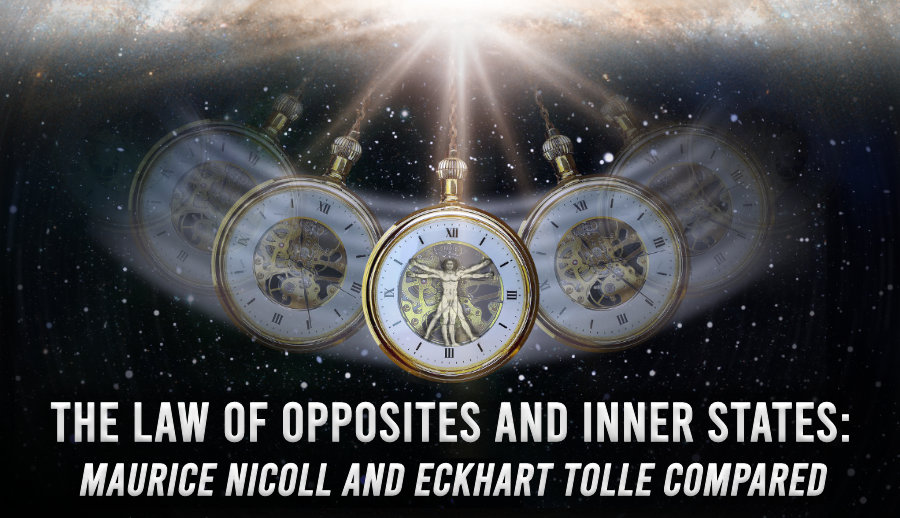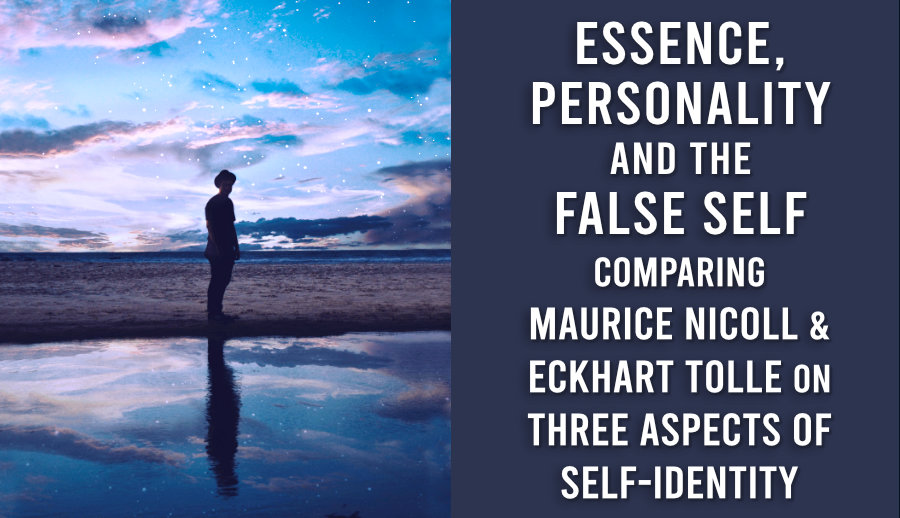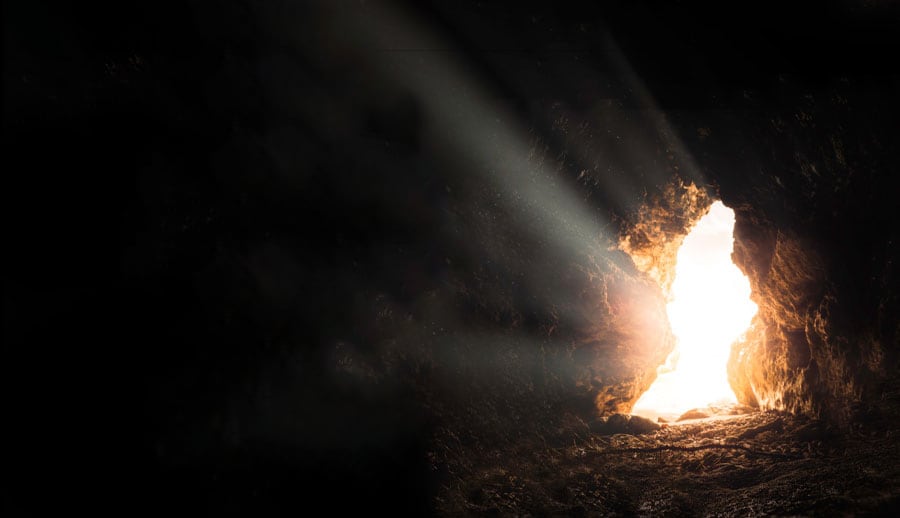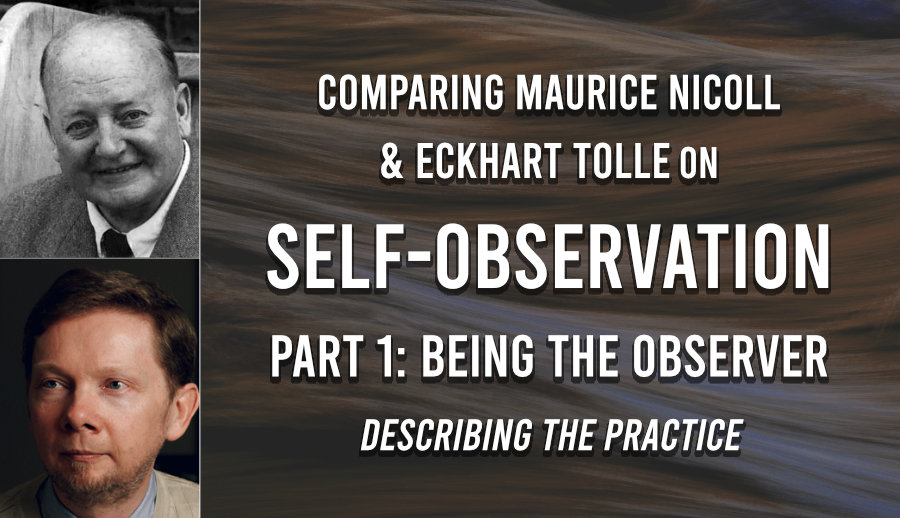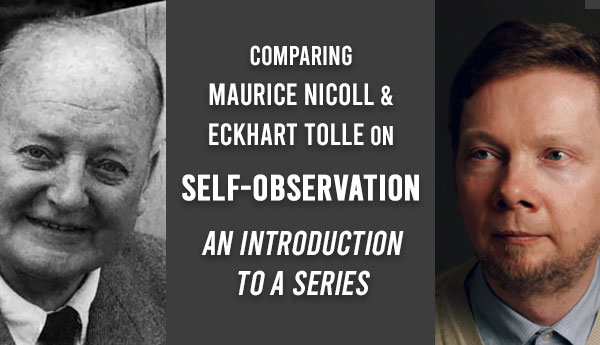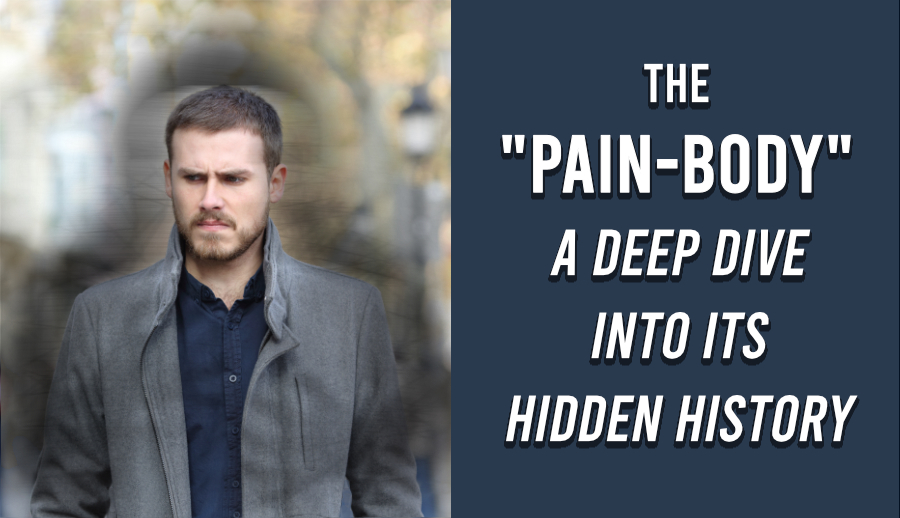Eckhart Tolle bears a striking similarity to Maurice Nicoll in describing a law of opposites affecting all life and our inner states—and how to reach a state of consciousness with “no opposite.” A detailed comparison of their remarkable similarities on this theme.
Category: Comparative analysis
Shifting Perspective on Life: Comparing Maurice Nicoll and Eckhart Tolle on Self-Observation (Pt. 3)
Self-observation allows us to take responsibility for our inner state, whatever life’s external conditions, Maurice Nicoll and Eckhart Tolle convey. We can see and transform inner reactions as they happen, they suggest, and gain “inner freedom.” I examine their many similarities in describing how this practice shifts our inner approach to life.
Maurice Nicoll vividly described how self-observation casts “the light of consciousness” inwards—illuminating “the darkness of unconsciousness” and transforming it. In doing, he fused Jungian ideas with Fourth Way methodology. I explore how Eckhart Tolle echos Nicoll on this theme, both descriptively and conceptually.
Self-observation is integral to inner-transformation, Maurice Nicoll and Eckhart Tolle affirm. We must impartially observe the unconscious stream of thoughts, emotions and reactions occurring in us, they say, and cease identifying with our inner states. This is a close look at the similar ways they explain this practice.
Bestselling author Eckhart Tolle is ranked among the world’s most spiritually influential living people. Self-observation is central to his self-help message. Yet the way he conveys this present-moment practice owes much, I argue, to the earlier work of Maurice Nicoll, a Jungian psychiatrist turned Fourth Way teacher. This is an introduction to a series of articles examining their many similarities on the subject.

